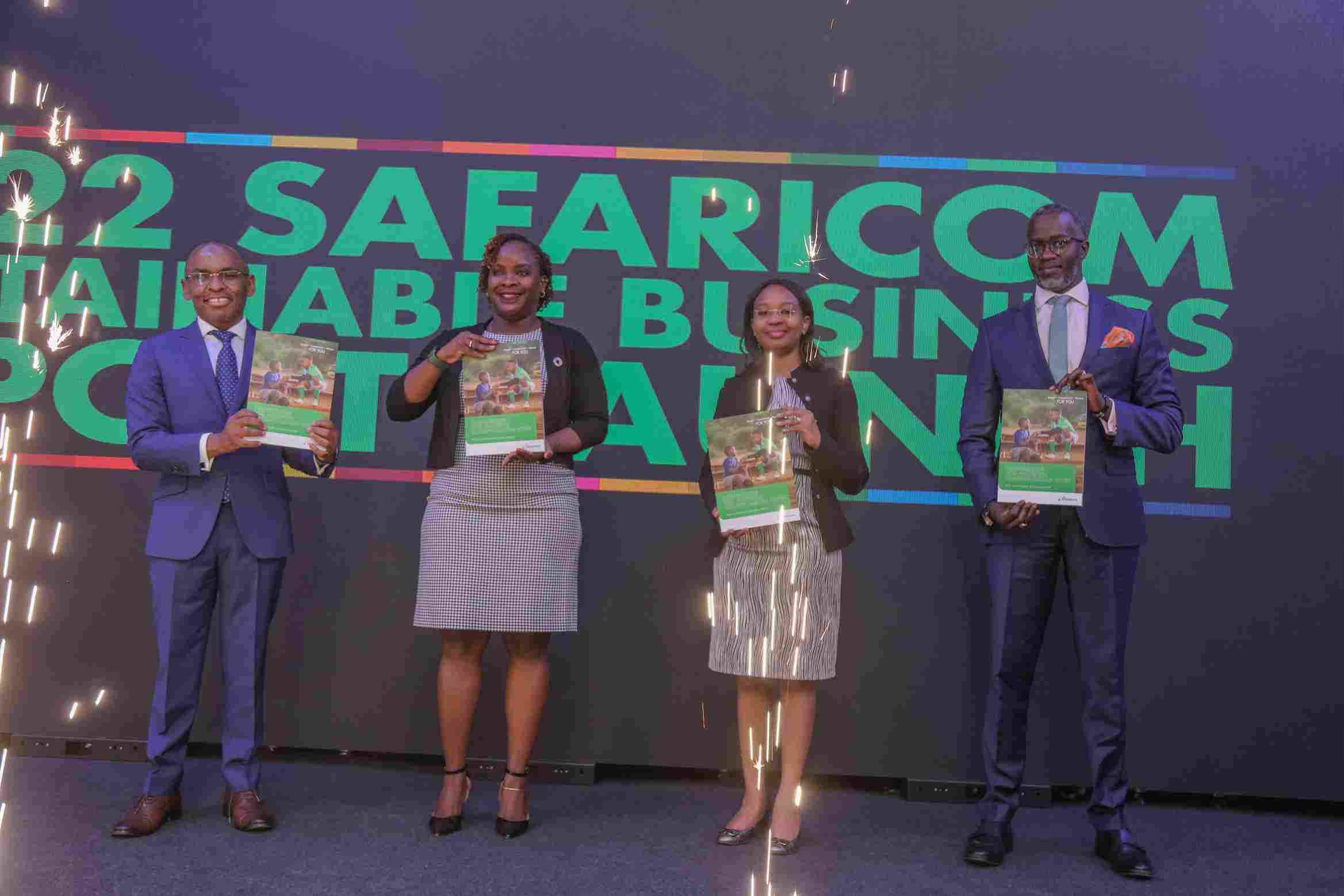Over the years, businesses have become key to delivering the UN Sustainable Development Goals through innovative solutions and strategic partnerships.
In Kenya, Safaricom has been at the forefront of embedding sustainability into its goals and corporate missions by addressing its processes’ environmental and social impacts.
This has been manifested in several sustainable initiatives the company has undertaken, such as co-creating and developing meaningful products and services that deliver social impact, unlock new opportunities and align with its priority SDGs.
Safaricom’s 2022 Sustainable Business Report shows that the company has significantly impacted health, education, agriculture, and humanitarian solutions. This was underpinned by the various products in education and health, which have allowed the company to deliver sustainable mobile technology innovations.
Through partnerships in health solutions, Safaricom has aligned its operations with the government’s vision of prioritising community-based primary health care. This has been achieved through Afya Moja, a medical records health portability platform developed in a consortium partnership (with Savannah Informatics Ltd and Intellisoft Consulting Ltd).
Afya Moja is a simple, mobile-based digital health passport that receives and securely stores patient information, which they can share with trusted healthcare providers for the medical help they need. A total of 3,627 patients and 109 practitioners signed up during the pilot phase.
Consequently, Safaricom partnered with BYON8 AB and piloted an AI symptom checker and telehealth service known as ‘Byon8’. The product was developed to make high-quality healthcare more accessible, affordable and equal by digitalising healthcare on an individual level.
Additionally, Safaricom supported the 1195 gender-based violence (GBV) hotline by providing airtime for tele-counsellors to provide psychosocial support for GBV victims/survivors.
Other processes conducted to advance community-based healthcare provision include the ambulance aggregator initiative, which brings together emergency responders and lets dispatchers find the best and closest provider, as well as track all rescues in real time. With partnerships with the M-PESA Foundation, Gertrude’s Children’s Hospital and the County Governments of Samburu, Baringo, Lamu and Homabay, Safaricom developed a program that monitors patients’ vital signs and enables remote consultation – Daktari Smart telemedicine programme.
All these developments in health were made possible with the establishment of a partnership with the Kenyan Healthcare Federation (KHF) and the Ministry of Agriculture (MoA). This strategic partnership has allowed Safaricom to contribute to the Public- Partnership Agenda significantly.
Apart from its partnerships in the health sector, Safaricom has also made strides to address the challenges in Kenya’s education sector in various ways. Ask a Mentor, for instance, which was developed to complement Shupavu 291, provided fundamental insights used to scale other education products.
Under the Last Mile Connectivity Project for primary schools, Safaricom has increased the number of connected schools from 70 to 88 to accelerate digital learning.
Speaking during the launch of the 2022 Sustainability Business Report, Safaricom’s CEO, Peter Ndegwa, noted that the company has partnered with Zeraki Learning to provide secondary school learners with access to affordable education services from well-trained teachers leveraging informative video lessons.
“Our investments in education, both from solutions and philanthropic perspectives, are geared towards addressing current gaps and boosting youth employability. Through the partnership with Zeraki Learning, we want to ensure that the platform makes digital education accessible and affordable. For parents, Zeraki gives them access to their child’s academic record, which they can use to support their decisions,” said Mr Ndegwa.
Evidently, Safaricom has continually demonstrated resilience in living true to its commitment to being a sustainable purpose-driven business. It has successfully improved the quality of life for Kenyans across the country by delivering a wide range of products, services and initiatives that support businesses and communities. And with various parts of the country in dire need of humanitarian assistance, its partnerships with the Kenya Red Cross, World Vision, and UNICEF will go a long way in helping children and families receive assistance.
Thankfully, all these partnerships will be exacerbated by the company’s commitment to becoming Kenya’s leading IoT and ICT solutions provider. This goal will help Safaricom continue to play a crucial role in overcoming socio-economic challenges by expanding regional business networks, making local communities more resilient against economic threats, and accelerating the digital economy, not only in terms of economic empowerment but also across areas diverse as agriculture, education and healthcare.




